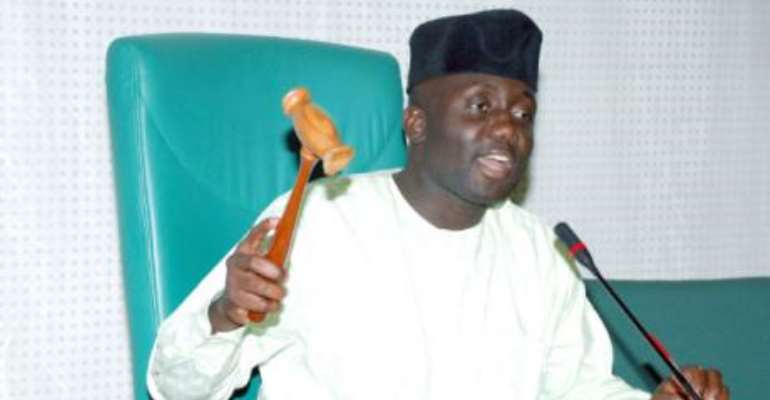YOUTHS CALL FOR TRUE FEDERALISM

The call for true federalism as a system of government in Nigeria is not new, especially since the inception of this civilian dispensation. In this feature, John Oba argues that since the youth, the future leaders, have made their voice heard on this all important issue, it is about time the nation's political leaders gave it a serious thought.
Federalism is a process relating to a form of government in which several states or regions defer some powers, for example, foreign affairs, defence, to a central government while retaining a limited measure of self government. Federalism is a system based upon democratic rules and institutions in which the power to govern is shared between national, provincial or state governments, creating what is often called a federation.
K.C. Wheare posited that federalism implies a situation in which the central and regional governments constitutionally 'are not subordinate to one another, but coordinate with each other.' Therefore, in an essentially classical federal system, master-servant relationship does not exist since powers of operation are derivable directly from the Constitution. The demand for the association in the first place, is expected to be voluntary and that usually gives room for mutual respect.
Federalism symbolises decentralisation of power in which constituent governments operate within the prism of self-respect for one another. There is no government in such a marriage that arrogates to itself or acts as the leader.
Putting the multi ethnic nature of Nigeria into consideration, it is believed that true federalism and resource control by states are the surest ways of pulling Nigeria out of the woods. Analysts insist that this system of government guarantees a wider participation in government and promotes a greater unity and prosperity for Nigeria. This allows units to develop at their own pace. The advantage inherent in capacities of such federated states, according to Wheare would guarantee the collective security of the federation, as this is a framework for the coexistence of unity and diversity. It realises the differences of ethnicity, economy, religion, education and other factors but strives to build unity out of the differences.
This was what prompted the gathering of Nigeria youths recently under the auspices of Nigerian Youth Parliament (NYP) for a one day retreat in Minna, Niger State to further call for the institution of this system of governance in Nigeria.
The members of the parliament numbering over 150 participated in the retreat with the title: 'Federalism, Pluralism and Nation Building In a Secure Nigeria,' at the Justice Idris Legbo Kutigi International Conference Centre, Minna where, according to the speaker of the parliament, Hon. Abdullahi Hussaini Maibasira, they shared ideas on the concept and rationale of federalism as a governance system, pluralism as a national asset and necessity for adequate measures to enhance nation building in an increasingly insecure global environment.
Addressing the delegates, Maibasira, said, 'We have a democracy with all its liberties but with all its imperfections. What is clear is that federalism as system in Nigeria has lasted since the creation of states in 1966 outliving regionalism. 'Therefore, to place the interest of any region or section of Nigeria above the interest of the federation is alien to federalism as a system and may threaten the unity of Nigeria.'
He, therefore, assured that the knowledge acquired from the proceedings of the retreat will further enrich the youth perspective on federalism in Nigeria, unity in a plural society and further enhance the cohesion of brotherhood.
Also at the retreat, the Governor of Niger State, Dr. Mu'azu Babangida Aliyu, commended the theme of the retreat and said that it was quite stimulating because in a democracy, 'We must encourage open and continuous discussion of issues to strengthen our capacity to deal with emerging challenges of nation building and development.'
Nation building is not a destination but a process, he continued and added, 'There is no doubt that we need to make our federalism more effective and responsive to the needs and aspirations of Nigerians to enhance national development in our plural society.
We must ensure equity, fairness and justice to enhance sustainable peace, unit and security in our nation.'
With these mélange of calls from all sections of the country for the institution of true federalism as a system of practice in Nigeria, its time our leaders, the so-called political elite look in that direction especially now that the problem of insecurity or terrorism has taken the government captive.
Also it will help to harness the economic potentials of each zone while relieving the states from the overbearing cloud of federal character, power sharing, revenue allocation, maintenance of public order, fiscal federalism etc that have threatened the consolidation of the Nigeria federation.
The excesses of political power elite are central to the crises and contradictions of Nigeria's federalism. Nigerian youths still belief that there is still hope for consolidation of the true federalism in Nigeria.
